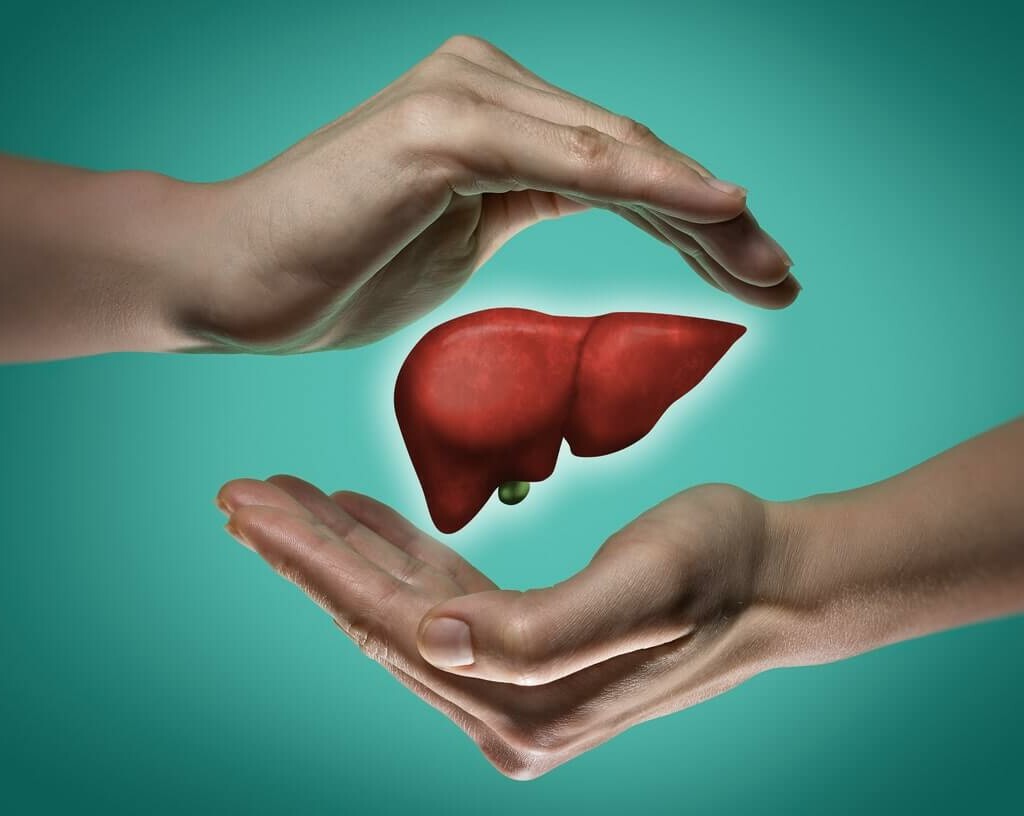The liver, the largest internal organ in the human body, is located on the right side of the abdomen just below the right lung and behind the ribs. With a pyramid-like structure, the liver is composed of two lobes: a right lobe and a left lobe.
Liver – Biological Decoding – Emotional conflicts
In addition to its division into two lobes, the liver is subdivided into multiple segments.
What makes it unique compared to other organs is that it receives its blood supply from two distinct sources: the hepatic artery supplies oxygenated blood to the liver directly from the heart, while the portal vein transports nutrient-rich blood from the intestines.
In case of necessity, the liver is capable of regenerating: it has been shown that even if 75% of the liver is removed, the organ can regenerate completely. This capacity makes it an essential organ for human survival.
The Liver: A wonder of biology
It performs multiple vital functions for the human body.
This organ tirelessly works to break down and store the nutrients absorbed by the intestine, processing them to turn them into sources of energy or materials for the repair of the body’s tissues. It is responsible for the production of most of the clotting factors which prevent excessive blood loss in the event of an injury.
Bile is another key product that the liver secretes into the intestines to aid in the absorption of nutrients especially those contained in fats. The liver performs a crucial task by filtering and breaking down toxic waste circulating in the blood, making it an important ally in the fight against diseases and disorders of the circulatory system.
The Importance of the Liver in the Human Adaptation and Renewal Process
The process of decomposition, storage and reconstruction of matter is key to human capacity for adaptation and renewal.
If a person is in a situation where they cannot carry out this task of reconstruction, feelings of overwhelm and excessive demand can arise, which can lead to resentment and hatred.
The liver, the organ responsible for these functions is an indicator of our ability to rebuild and regenerate which requires flexibility and acceptance of the constantly changing circumstances of life.
Nothing in life is static and everything is constantly in motion, allowing us to constantly regenerate. The storage of basic nutrients in the liver is related to fundamental survival needs, so lack of economic resources and adverse life circumstances can also affect its proper functioning.
The close relationship between hunger and liver cancer
Experts warn about the dangers of food scarcity
Hunger and the liver are closely related, according to experts.
Data on the global map of hunger and liver cancer shows a clear correlation between the two, as the embryonic carcinoma gene, which is found in Africa due to its high incidence, seems to be related to food scarcity.
When we eat abundantly, the liver functions normally. However, if we go hungry, the liver has to work hard to make the most of the available nutrients, which can lead to the appearance of nodules or even cancer.
Famines are especially dangerous in this regard and that is why we must be alert to any such situation.
During wars, for example, food rationing may be symbolic, but if it continues over time and other problems are added, such as unemployment, the situation can be very critical.
The liver as a symbol of the fight against hunger and economic resource scarcity in our society
The liver becomes a symbol representing the fight against hunger and economic resource scarcity in our society. The relationship between the liver and money is evident as only with sufficient economic resources can we acquire food to satisfy our basic needs.
This problem manifests itself in various conflicts, the first of which is hunger which is still a reality in many parts of the world. The second conflict is the lack of economic resources, which limits people’s ability to acquire quality food. And finally the conflict that arises in the family sphere when fighting over an inheritance where it is said that “they eat the liver”, referring to the intensity of the dispute.
Fears of not having enough to eat and the lack of economic resources generate strong resentment which manifests itself in the need to not go hungry. These conflicts are transgenerational and are transmitted through stories about the struggle for family inheritances.
The liver, the body’s pantry: storage and filtration of proteins
The liver is one of the most important organs in the human body. In addition to its function as a storage site for proteins it also plays a crucial role in cleaning and filtering toxins.
If a person feels they are being poisoned by medication or the presence of toxic and negative individuals, their liver must work hard to process and eliminate these harmful substances.
It is essential for enough liver to be produced to absorb necessary nutrients and filter environmental toxicity. If you feel that something is not functioning properly in your body, approach decoding your symptoms and find the path to a happier and healthier life.
Transform your emotional and spiritual life with a personalized tool
Discover the power of Biodecoding combined with Kabbalah. Through your Personal Kabbalistic Tree, designed based on your name and date of birth, you’ll receive a practical guide to work on your emotions and achieve holistic well-being.





